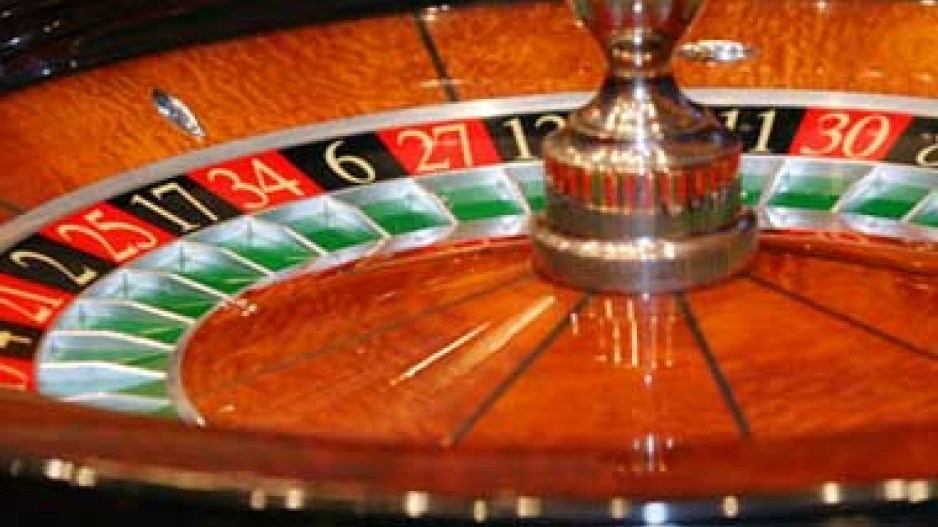Vancouver gaming company Las Vegas From Home.com Entertainment Inc. (TSX-V:LVH) (LVFH) is peddling a product on Facebook that lawyers say is likely illegal in B.C.
A free download for Facebook users, LVFH's app allows players to buy virtual money to play backgammon, poker and other casino games. LVFH announced April 3 that it has expanded its Real Vegas Casino brand on Facebook to include sports wagering.
But Duhaime Law lawyer Christine Mingie Duhaime told Business in Vancouver April 3 that the app is likely illegal in B.C.
"The Criminal Code of Canada starts from the premise that all gambling is illegal unless there are certain areas that are carved out to legalize it," said Duhaime, who specializes in gaming and money laundering law. "In B.C., only the Province of B.C. is legally able to conduct any gambling by use of a computer."
She said one exemption is that sites like HorsePlayer Interactive can accept online bets for horse races at Great Canadian Gaming's Hastings Park and other racetracks because horse racing is a federal jurisdiction.
She added that the Canadian criminal code also makes it an offence to accept bets even if they are never paid out in a negotiable currency.
However, LVFH president Jake Kalpakian said his legal team has given him the green light because at no point does his company collect bets.
Facebook users simply buy virtual currency so they can play online games with friends for fun, not financial gain. Other companies that he said sell virtual currency used in online gambling where there is no payout include:
•Zynga Inc. (Nasdaq: ZNGA)
•DoubleDown Casino; and
•Slotomania.
"What we're looking to do is build up the database [of names of people who buy virtual chips]," Kalpakian told BIV. "One day we can leverage that database in some form."
A New Jersey Senate committee approved a bill April 3 that would allow Atlantic City casinos to accept bets from gamblers in other states and even other countries, as long as federal and state authorities agree it's legal.
Kalpakian said if that bill becomes law and Internet gambling becomes legal in New Jersey, a New Jersey company might want to buy LVFH's database.
LVFH lost more than $1.8 million in the nine months that ended September 30; in the same nine-month period in 2010, it lost more than $2.1 million. Its revenue comes from licensing its software to another branch of the company, which is based in Mexico.
Despite LVFH's losses, online gambling is big business.
In July 2010, the British Columbia Lottery Corp. rolled out Play Now, the first government-sanctioned online casino in North America.
The cabinet minister in charge of the program, Rich Coleman, told media at the time that British Columbians spend $100 million annually on more than 2,000 illegal, offshore gambling websites.
"Of these websites, not one is accountable to the residents of British Columbia, not accountable to the players that play on their sites and not accountable to the laws of this country," he said.
Several companies focused on Internet gambling have had their start in Vancouver.
Starnet was founded in Vancouver in the 1990s and later busted by police who suspected illegal gambling operations. On August 17, 2001, three days shy of the second anniversary of the raid on the company's Vancouver headquarters, Starnet pleaded guilty to one criminal gambling count and agreed to forfeit US$3.92 million in illicit proceeds and pay a $100,000 fine and a $15,000 mandatory victim surcharge.
A nearly broke Calvin Ayre founded Bodog in Vancouver in 1994. Ayre made Forbes Magazine's 2006 list of billionaires thanks to Internet gambling success.
Ayre was one of four people indicted in February on two charges by federal grand jury in Baltimore, Maryland:
•conducting an illegal gambling business from June 2006 to January 2012; and
•money laundering conspiracy during the same period.
According to the indictment, prosecutors allege that Bodog used payment processors in Switzerland, England, Malta and Canada to send at least US$100 million via wire and cheques to gamblers in Maryland and elsewhere. •




